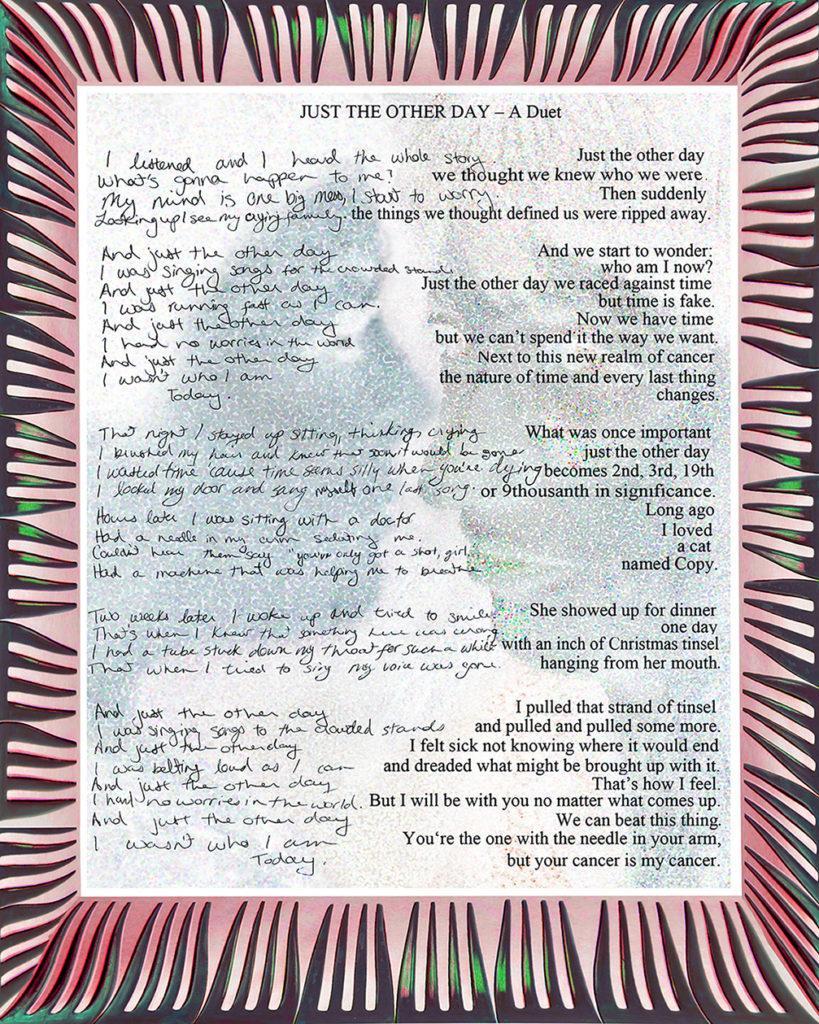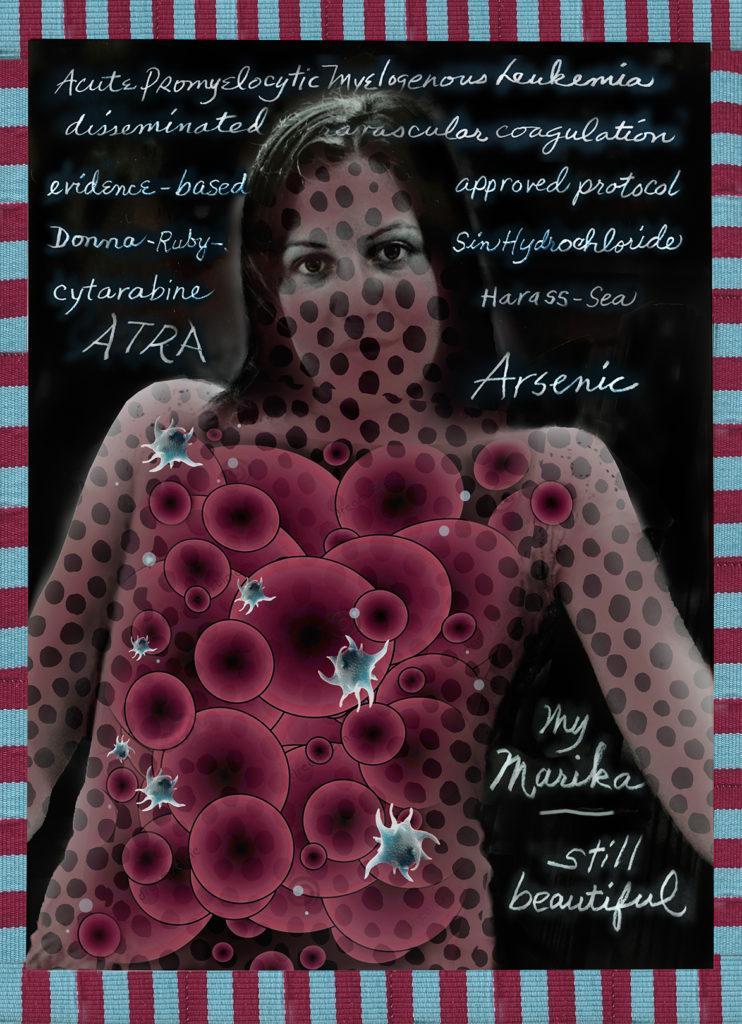Marika’s classmates and teachers had been sending notes of support, and “Marika Kicks Leukemia” tee shirts circulated throughout Ithaca High. In a daze, but smiling, Marika listened to her benefit concert over my cellphone held to her ear. The guidance counselor called daily to see if she could attend the graduation, but no one knew for sure if Marika would be able to walk, sit up in a wheelchair, or even tolerate the trip back to Ithaca. At the last minute the Roc Docs said yes. In a stupor of disbelief, I drove her home.
There was plenty to worry about. Marika could pass out at any time. It was hot, and the red wig was heavy under her cap. She could barely walk, but insisted on walking. There were stairs. Her last name beginning with ‘W’, she would shake the same germ-riddled hands that shook all four hundred classmates’ hands before her. Concerned about her meager immune system, I presented her with a pair of purple latex gloves. She ignored me. She was uninterested in instructions on how to gracefully avoid handshakes and hugs. How would she hold up during the half hour wait in line the students had to endure before claiming their seats? She was determined to do the whole thing the way she’d always expected. So I left her off as close as I could to the stadium at Cornell University where the event was to take place, where there was already a traffic jam, long lines, and huge tangles of people and germs.
We were all there at Schoellkopf Hall. Laurie. Greg. Rachel. Marcus. Marika’s father and his wife. Our mother-daughter tribe. Teachers Marika hadn’t seen in weeks. People I hadn’t seen in years. I was hugged repeatedly as Laurie and I made our way to the spot high in the bleachers that Rachel had staked out for us. The band began to play and the class of 2008 filed in and filled the expanse of seats below us. Teary-eyed, I kept my gaze fixed on Marika during the speeches. Then, finally, the students rose from their seats.
Marika stood. Soon, she was walking. She was next. The stairs—suddenly I couldn’t see through the crowd—she’d somehow climbed the stairs when her name was called. There was a burst of applause. There was thunderous clapping, cheering. She smiled, embarrassed, up on the stage. I had to stand to see. People all around were standing. She stopped before each of the graduating officials to receive their blessings. The audience stomped and roared. Marika stood there, astonished, surveying the scene for what seemed like forever. I clapped hard as I could. I cried.
The bleachers shook wildly when she stepped down off the stage. The rumpus continued as she headed back to her seat and was ambushed in hugs. And as the din died down, I scanned the crowd. How astounding it was to be held in the hearts of so many. I’m her Mom, I smiled through tears. Right then I knew I’d always remember the sheer glory and magnificence of that moment. What I didn’t know was how later, and forever, the memory of Marika’s graduation would stir up an ocean of pride and tears. Like it was just the other day.

